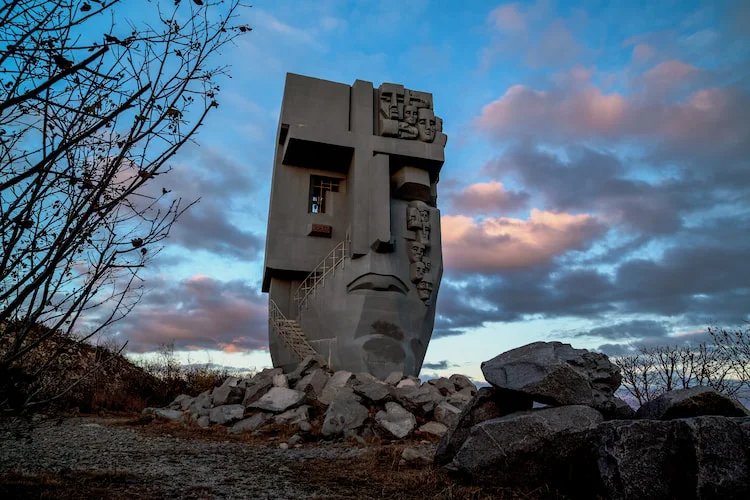
The Mask of Sorrow, a monument to the victims of the Kolyma gulag, in Magadan, in Russia’s Far East. Photo: Shutterstock
The Prosecutor General’s Office in Russia’s far eastern Magadan region has overturned the exoneration of several dozen individuals convicted of crimes during the Stalin era following a review of rehabilitation orders issued in the early 1990s, Russian news outlet 7x7 reported on Sunday.
Prosecutors in Magadan, a remote area in Russia’s Far East that is synonymous with Soviet-era labour camps, examined some 3,000 archived case files pertaining to labour camps in the region’s Kolyma district, where thousands of political prisoners were worked to death in merciless conditions, ultimately revoking the rehabilitation of between 50–60 individuals.
Maxim Komarovsky, who heads the Criminal Justice Department of the regional Prosecutor General’s Office, told regional broadcaster Vesti Magadan that justice was “being restored in cases where those convicted were indeed collaborators with fascist forces — those who came to conquer our land. In such instances, rehabilitation decisions are being annulled.”
Following Stalin’s death in 1953, many victims of his indiscriminate purges were formally rehabilitated — many posthumously — with the Soviet government officially recognising that their imprisonment had been unjust. That process continued in the early 1990s, when thousands of other Russians had their names cleared.
While Komarovsky gave no specifics on what documents were used to justify the revocations, or the identities of the affected individuals, he did say that the decision affected cases involving “accomplices of Nazi Germany” who had been imprisoned in the 1940s and 1950s, as well as so-called “Vlasovites” — followers of Soviet General Andrey Vlasov, who defected to Nazi Germany and led the Russian Liberation Army against the Soviet Union, and “Banderites” — supporters of Ukrainian nationalist Stepan Bandera, whose movement sought independence from the Soviet Union.
The move comes amid broader debates over historical memory in Russia, particularly regarding the legacy of Soviet repression and the rehabilitation of political prisoners.
